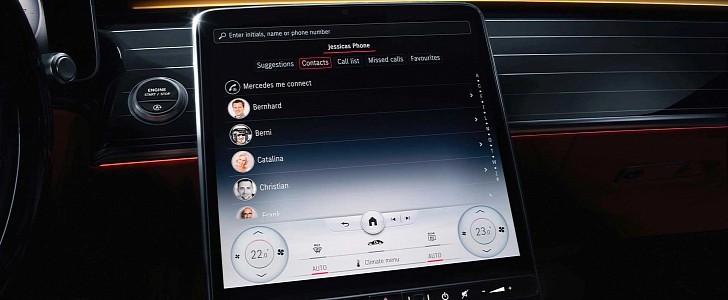For a while now autoevolution has been providing you with an in-depth look at the problems faced by all those using today’s technologies behind the wheel, like Apple CarPlay, Android Auto, Waze, and the bunch. Some of these problems are serious, others less so, but the point is today’s solutions are far from perfect.
And drivers know that, it seems, and have little faith in them. This is the conclusion of a study conducted by a British company called Rivervale Leasing and, although the findings are limited to the UK, it probably isn’t far fetched to believe others elsewhere feel the same.
Before we go into it, you should know the study did not target a specific technology or app, but in-car infotainment systems as a whole.
Trying to find what British drivers think about today’s infotainment systems, the group found that 6 in 10 drivers do not trust them, mostly because they tend to break down and be a distraction when they are in working order.
One in three drivers said their infotainment system failed at some point, or at least some feature stopped working: voice recognition, Android Auto or Apple CarPlay connectivity, navigation systems, or the Bluetooth.
When in working order, infotainment is a major source of distraction behind the wheel. 49 percent of those 1,000 Brits questioned believe hands-free games, augmented reality navigation or even traffic alerts make them lose focus while at the wheel.
Also interesting to note is that at least as far as Britain goes, people there are not entirely ready for voice-controlled infotainment systems, with 38 percent of them going for traditional buttons, and 46 percent choosing to go with touchscreens.
With all the problems that are plaguing it, and the apparent lack of trust from buyers, the global infotainment industry is expected to be worth $29.2 billion in 2026, way up from the $20.8 billion in 2019, according to the Global and China In-Vehicle Infotainment Industry Report released by Research and Markets.
Before we go into it, you should know the study did not target a specific technology or app, but in-car infotainment systems as a whole.
Trying to find what British drivers think about today’s infotainment systems, the group found that 6 in 10 drivers do not trust them, mostly because they tend to break down and be a distraction when they are in working order.
One in three drivers said their infotainment system failed at some point, or at least some feature stopped working: voice recognition, Android Auto or Apple CarPlay connectivity, navigation systems, or the Bluetooth.
When in working order, infotainment is a major source of distraction behind the wheel. 49 percent of those 1,000 Brits questioned believe hands-free games, augmented reality navigation or even traffic alerts make them lose focus while at the wheel.
Also interesting to note is that at least as far as Britain goes, people there are not entirely ready for voice-controlled infotainment systems, with 38 percent of them going for traditional buttons, and 46 percent choosing to go with touchscreens.
With all the problems that are plaguing it, and the apparent lack of trust from buyers, the global infotainment industry is expected to be worth $29.2 billion in 2026, way up from the $20.8 billion in 2019, according to the Global and China In-Vehicle Infotainment Industry Report released by Research and Markets.











































